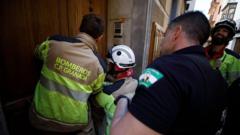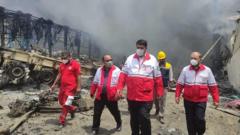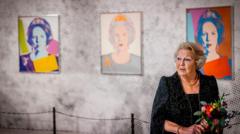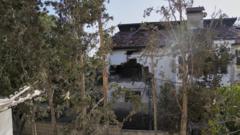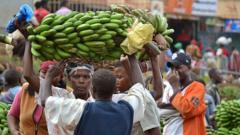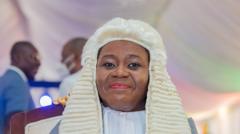A judicial inquiry has been announced in South Africa to investigate allegations of political interference in the prosecution of apartheid-era crimes, following a lawsuit from victims' families demanding justice.
South Africa Launches Inquiry into Apartheid-Era Prosecution Failures
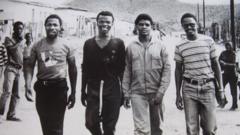
South Africa Launches Inquiry into Apartheid-Era Prosecution Failures
President Cyril Ramaphosa initiates a judicial inquiry to address political interference in prosecuting apartheid crimes after decades of survivor grievances.
In a significant move towards justice for victims of apartheid-era crimes, South African President Cyril Ramaphosa has announced a judicial inquiry aimed at investigating allegations of political interference in the prosecution of such cases. This inquiry is a notable development, coming three decades post-apartheid, in response to grievances voiced by survivors and relatives of victims, who have expressed frustration over the lack of accountability for past atrocities.
The Truth and Reconciliation Commission (TRC), convened in 1996 to address the human rights violations committed during apartheid, documented numerous acts of violence including murder and torture. However, few cases have progressed to trial, leaving many victims and their families seeking redress. In a presidential statement, Ramaphosa expressed his commitment to establishing the truth and ensuring that these matters reach a conclusive resolution.
The inquiry emerges from settlement discussions linked to a high-profile lawsuit filed by a group of 25 families and survivors, who are seeking $9 million in damages from the government. This group contends that the post-apartheid administrations have failed to adequately investigate crimes committed under apartheid, thereby failing to deliver justice.
Among the plaintiffs is the son of Fort Calata, a member of the Cradock Four—a group of anti-apartheid activists murdered by security forces in 1985. Their deaths elicited nationwide outrage, and although six former police officers subsequently confessed their involvement to the TRC, they were never prosecuted and have all since passed away.
Critics have long alleged that the ruling African National Congress (ANC) may have entered into an undisclosed agreement with the former apartheid government to obstruct prosecutions. The ANC has repeatedly denied these accusations. Acknowledging the ongoing allegations of improper influence that have persisted through various administrations, the current presidential office reiterated its intent to facilitate a thorough inquiry.
Further details regarding the inquiry's leadership and timeline will be unveiled shortly, as South Africa embarks on this pivotal journey toward justice for the victims of its painful past.

